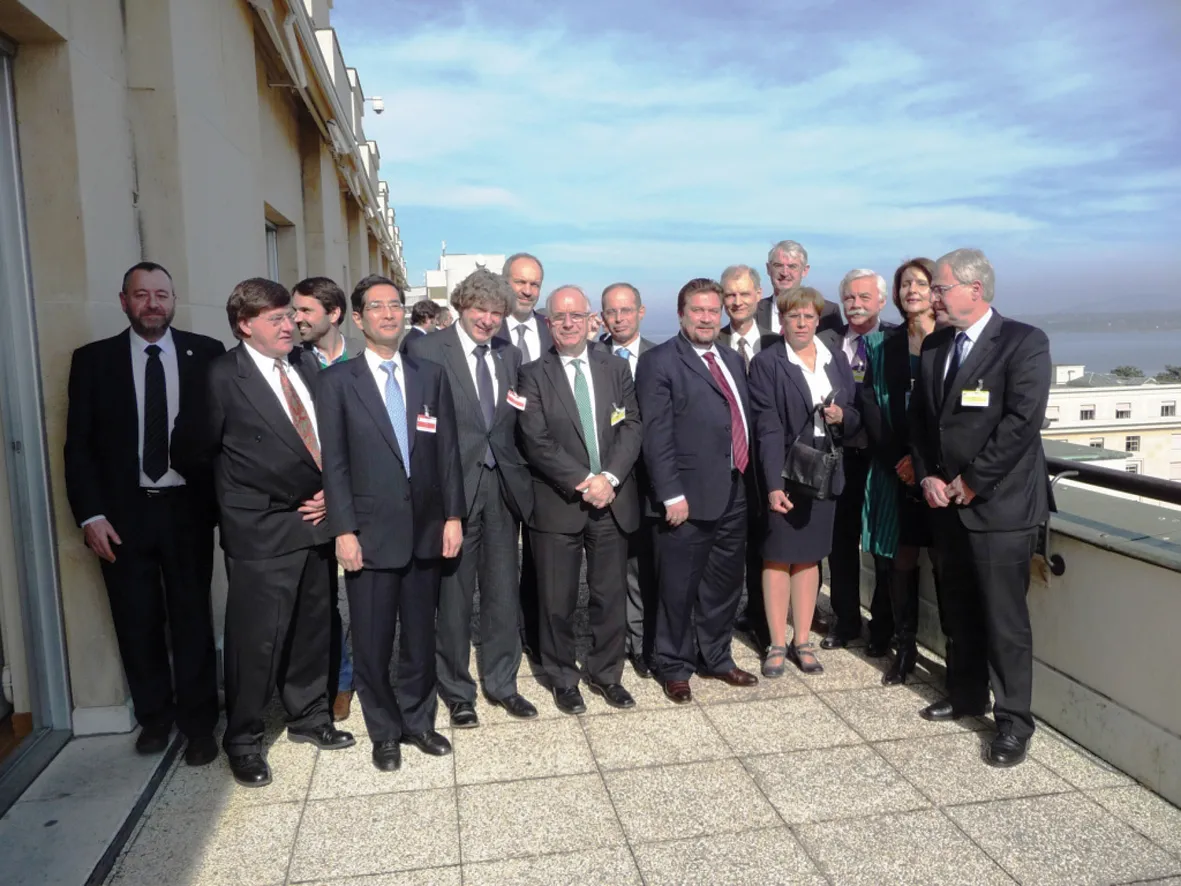US States spent an estimated $131 billion on transportation in fiscal year 2010, but many cannot answer critical questions about what returns this investment is generating, according to a new report by the Pew Centre on the States and the Rockefeller Foundation
February 29, 2012
Read time: 3 mins
US States spent an estimated $131 billion on transportation in fiscal year 2010, but many cannot answer critical questions about what returns this investment is generating, according to a new report by the Pew Centre on the States and the Rockefeller Foundation. The study comes at a time when some members of Congress are proposing that the next surface transportation authorisation act, the law that governs the largest federal funding streams for states' transportation systems, more closely tie dollars to performance.
The report, Measuring Transportation Investments: The Road to Results, found considerable differences among the 50 states and the District of Columbia in linking transportation systems to six key goals particularly important to states' economic well-being and taxpayers' quality of life: safety, jobs and commerce, mobility, access, environmental stewardship and infrastructure preservation.
Just 13 states — California, Connecticut, Florida, Georgia, Maryland, Minnesota, Missouri, Montana, Oregon, Texas, Utah, Virginia and Washington — have goals, performance measures and data to help decision makers prioritise transportation spending. Nineteen states trail behind, lacking a full array of tools needed to account for the return on investment in their roads, highways, bridges and bus and rail systems. The remaining 18 states and Washington, DC, fall somewhere in between, with mixed results.
Most states are entering their fourth year of the ongoing budget crisis, having closed more than $400 billion in budget gaps since 2008. At the same time, policy and business leaders across the US are acknowledging that states' transportation systems are essential to helping advance short- and long-term economic growth.
"State lawmakers must make transportation policy and spending choices based on evidence about what works and what does not," said Robert Zahradnik, director of research, Pew Centre on the States. "Unless states have clear goals, performance measures and data to generate that information, it is very difficult for policy makers to prioritise transportation investments effectively, target scarce resources and help foster economic growth."
"The American public expects leaders to manage our transportation investment with an eye toward performance and results. In fact, in our recent Rockefeller Foundation Infrastructure Survey, 90 percent favored strengthening policies that hold government accountable for collecting data and ensuring that investments fit into an overall plan that is on time and on budget," said Nicholas Turner, Rockefeller Foundation managing director. "This report, which comes at a time when performance and outcomes are such critical pieces of the transportation policy debate, provides both examples of how a handful of states do this well and how many others still have a long road ahead of them," said Nicholas Turner, Rockefeller Foundation managing director.
Measuring Transportation Investments: The Road to Results describes policies and practices lawmakers can adopt to collect and use information that can improve taxpayers' return on investment in states' transportation systems, even in difficult fiscal times. The report is available at this %$Linker:External 0 0 0 oLinkExternal link Measuring Transportation Investments Report http://www.pewcenteronthestates.org/initiatives_detail.aspx?initiativeID=85899358927 false false %>.
The report, Measuring Transportation Investments: The Road to Results, found considerable differences among the 50 states and the District of Columbia in linking transportation systems to six key goals particularly important to states' economic well-being and taxpayers' quality of life: safety, jobs and commerce, mobility, access, environmental stewardship and infrastructure preservation.
Just 13 states — California, Connecticut, Florida, Georgia, Maryland, Minnesota, Missouri, Montana, Oregon, Texas, Utah, Virginia and Washington — have goals, performance measures and data to help decision makers prioritise transportation spending. Nineteen states trail behind, lacking a full array of tools needed to account for the return on investment in their roads, highways, bridges and bus and rail systems. The remaining 18 states and Washington, DC, fall somewhere in between, with mixed results.
Most states are entering their fourth year of the ongoing budget crisis, having closed more than $400 billion in budget gaps since 2008. At the same time, policy and business leaders across the US are acknowledging that states' transportation systems are essential to helping advance short- and long-term economic growth.
"State lawmakers must make transportation policy and spending choices based on evidence about what works and what does not," said Robert Zahradnik, director of research, Pew Centre on the States. "Unless states have clear goals, performance measures and data to generate that information, it is very difficult for policy makers to prioritise transportation investments effectively, target scarce resources and help foster economic growth."
"The American public expects leaders to manage our transportation investment with an eye toward performance and results. In fact, in our recent Rockefeller Foundation Infrastructure Survey, 90 percent favored strengthening policies that hold government accountable for collecting data and ensuring that investments fit into an overall plan that is on time and on budget," said Nicholas Turner, Rockefeller Foundation managing director. "This report, which comes at a time when performance and outcomes are such critical pieces of the transportation policy debate, provides both examples of how a handful of states do this well and how many others still have a long road ahead of them," said Nicholas Turner, Rockefeller Foundation managing director.
Measuring Transportation Investments: The Road to Results describes policies and practices lawmakers can adopt to collect and use information that can improve taxpayers' return on investment in states' transportation systems, even in difficult fiscal times. The report is available at this %$Linker:







